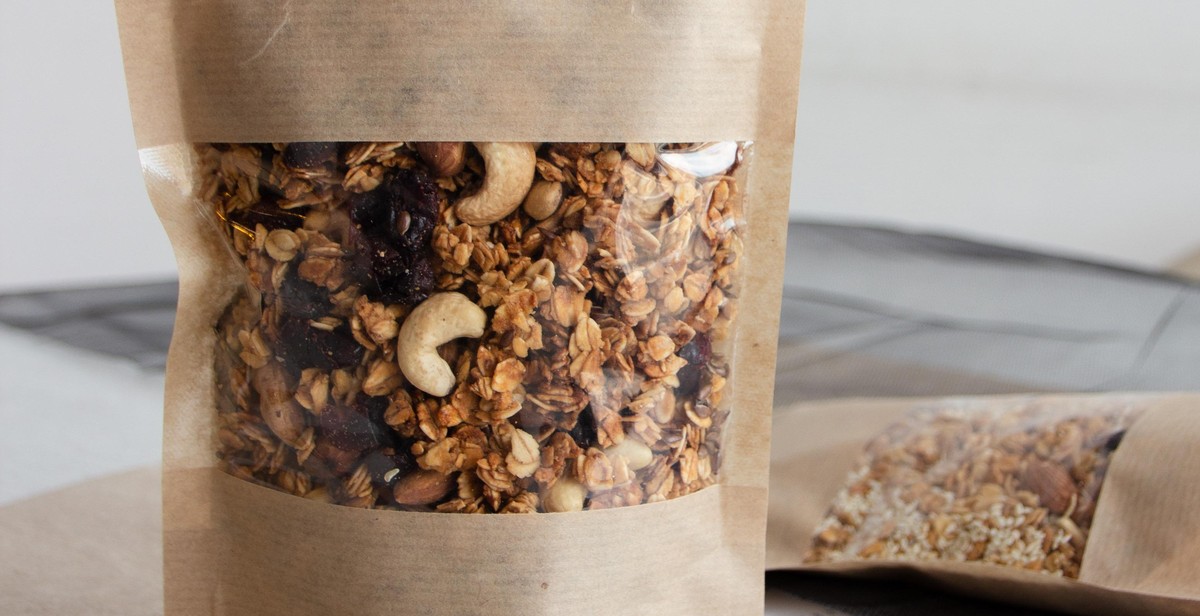How to Create an Ostrich Feeding Program
Ostriches are fascinating birds that are known for their size and speed. As with any animal, proper nutrition is crucial for their health and wellbeing. Creating an ostrich feeding program can be a daunting task, but it is essential to ensure that your ostriches receive the necessary nutrients to thrive.
Why is a Nutritional Plan Important for Ostriches?
Just like humans, ostriches require a balanced diet to stay healthy. Their diet should consist of a variety of foods that provide the necessary vitamins, minerals, and nutrients. A lack of proper nutrition can lead to health problems such as weak bones, poor egg production, and reduced growth rates.
Establishing a Nutritional Plan
The first step in creating a nutritional plan for ostriches is to understand their dietary needs. Ostriches are omnivores and require a diet that consists of both plant and animal-based foods. The diet should include high-quality protein sources, such as insects and worms, as well as fruits, vegetables, and grains.
It is also important to consider the age and activity level of your ostriches when creating a feeding program. Young ostriches require more protein and calcium for growth, while older ostriches may require a diet that is lower in energy to prevent obesity.
Conclusion
Creating an ostrich feeding program may seem overwhelming, but it is essential for the health and wellbeing of your birds. By understanding their dietary needs and considering their age and activity level, you can establish a nutritional plan that promotes optimal ostrich health.

Understanding Ostrich Nutritional Needs
As with any living creature, it is essential to understand the nutritional needs of ostriches to ensure optimal health and growth. Ostriches are primarily herbivores, and their diet consists of a variety of plants, including grasses, leaves, and seeds.
Protein Requirements
Protein is one of the essential nutrients that ostriches require to maintain good health. It is vital for growth, tissue repair, and the production of enzymes and hormones. Ostriches require a diet that contains at least 16% protein to meet their nutritional needs.
It is essential to note that ostriches have a unique digestive system that allows them to break down protein efficiently. However, excessive protein in their diet can lead to kidney damage, so it is crucial to provide them with the right amount of protein.
Carbohydrate Requirements
Carbohydrates are another essential nutrient that ostriches require in their diet. Carbohydrates provide energy to the body, and they are essential for muscle function. Ostriches require a diet that contains around 50% carbohydrates to meet their nutritional needs.
Ostriches can digest carbohydrates from a variety of sources, including grains, fruits, and vegetables. However, it is vital to ensure that the carbohydrate sources in their diet are not too high in sugar, as this can lead to obesity and other health problems.
Fat Requirements
Fat is an essential nutrient that ostriches require in their diet. Fat provides energy to the body, and it is essential for the absorption of fat-soluble vitamins. Ostriches require a diet that contains around 3% fat to meet their nutritional needs.
The primary sources of fat in an ostrich’s diet are seeds and nuts. However, it is essential to ensure that the fat sources in their diet are not too high in saturated fat, as this can lead to health problems such as heart disease.
Summary
Understanding the nutritional needs of ostriches is essential for their optimal health and growth. Ostriches require a diet that contains at least 16% protein, 50% carbohydrates, and 3% fat to meet their nutritional needs. It is crucial to ensure that the sources of these nutrients in their diet are not too high in sugar or saturated fat to prevent health problems.

Creating a Feeding Program
Establishing a feeding program for ostriches is crucial in ensuring optimal health and productivity. It involves providing a balanced diet that meets the bird’s nutritional needs. Here are some essential factors to consider when creating a feeding program:
Establishing Feeding Schedule
Ostriches require a consistent feeding schedule to maintain their health and productivity. It is recommended to feed the birds twice a day, preferably in the morning and evening. Consistency in feeding time helps to avoid digestive issues such as bloating and indigestion.
Providing Adequate Water
Water is a critical component of an ostrich’s diet. The birds require clean and fresh water at all times. It is recommended to provide water in a clean container that is easily accessible to the birds. Ostriches can consume up to 10% of their body weight in water daily; hence, it is essential to monitor water intake to avoid dehydration.
Choosing the Right Feed
Feeding ostriches with the right feed is crucial in ensuring optimal health and productivity. The birds require a balanced diet that consists of protein, vitamins, minerals, and energy. The feed should be of good quality and free from contaminants. Ostriches can consume up to 2.5% of their body weight in feed daily. It is recommended to consult a veterinarian or a nutritionist to determine the right feed for your ostriches.
Supplementing with Vitamins and Minerals
Ostriches require vitamins and minerals to maintain their health and productivity. Supplementing their feed with vitamins and minerals can help to meet their nutritional needs. It is recommended to consult a veterinarian or a nutritionist to determine the right supplements for your ostriches.
| Ingredient | Percentage (%) |
|---|---|
| Maize | 60 |
| Soybean Meal | 25 |
| Bone Meal | 5 |
| Fish Meal | 5 |
| Canola Meal | 5 |
In conclusion, creating a feeding program for ostriches requires a balanced diet that meets their nutritional needs. It involves establishing a feeding schedule, providing adequate water, choosing the right feed, and supplementing with vitamins and minerals. It is recommended to consult a veterinarian or a nutritionist to determine the right feed and supplements for your ostriches.

Monitoring Ostrich Health
As a responsible ostrich farmer, it is important to monitor the health of your ostriches regularly. This will help you identify any potential problems early on and take necessary actions to prevent the situation from getting worse. Monitoring ostrich health involves observing their behavior, checking their body condition, and identifying any nutritional deficiencies.
Observing Ostrich Behavior
One of the easiest ways to monitor ostrich health is by observing their behavior. Ostriches are social animals that live in groups, and any changes in their behavior can indicate a problem. Look out for signs of stress, such as excessive pacing or feather-plucking, as well as signs of illness, such as lethargy or loss of appetite.
It is also important to observe how the ostriches interact with each other. Aggressive behavior can indicate a lack of space or resources, which can lead to health problems in the long run.
Checking Ostrich Body Condition
Another way to monitor ostrich health is by checking their body condition. This involves assessing their overall body condition score, which is based on factors such as muscle mass, fat content, and hydration levels.
Use a body condition scoring chart to determine whether your ostriches are underweight, overweight, or at an ideal weight. This will help you adjust their feeding program accordingly and prevent health problems such as metabolic disorders.
Identifying Nutritional Deficiencies
Finally, it is important to identify any nutritional deficiencies that may be affecting your ostriches’ health. This can be done by analyzing their feed and water intake, as well as any symptoms of deficiency such as poor feather quality or decreased egg production.
Consult with a veterinarian or nutritionist to identify any potential deficiencies and adjust your feeding program accordingly. This will ensure that your ostriches receive the optimal nutrition they need for good health and productivity.
Overall, monitoring ostrich health is an essential part of any ostrich farming program. By observing their behavior, checking their body condition, and identifying nutritional deficiencies, you can ensure that your ostriches stay healthy and productive for years to come.

Conclusion
Creating an ostrich feeding program is crucial for the overall health and well-being of your ostriches. With an optimal nutritional plan in place, your ostriches will have a better chance of thriving and reaching their full potential.
When establishing a feeding program, it is important to consider the specific needs of your ostriches, including their age, weight, and activity level. You should also take into account the quality of the feed and the feeding schedule.
It is important to monitor your ostriches’ health regularly and make adjustments to the feeding program as necessary. This can include increasing or decreasing the amount of feed, adjusting the feeding schedule, or changing the type of feed altogether.
Consulting with a veterinarian or nutritionist can also be beneficial in creating an optimal feeding program for your ostriches. They can provide expert advice and guidance on the best practices for ostrich nutrition and health.
By following these guidelines and taking a proactive approach to ostrich nutrition, you can ensure that your ostriches are healthy, happy, and thriving.
| Key Takeaways: |
|---|
| • Creating an ostrich feeding program is crucial for the overall health and well-being of your ostriches. |
| • Consider the specific needs of your ostriches, including their age, weight, and activity level. |
| • Monitor your ostriches’ health regularly and make adjustments to the feeding program as necessary. |
| • Consulting with a veterinarian or nutritionist can be beneficial in creating an optimal feeding program for your ostriches. |
